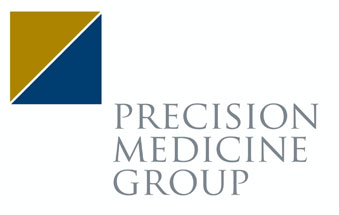First, let us begin by congratulating two Stern IR clients on recent NDA acceptances:
- Blueprint Medicines announced that the FDA accepted and granted priority review for its supplemental new drug application for AYVAKIT for advanced systemic mastocytosis. The FDA set an action date of June 16, 2021 under PDUFA.
- Cara Therapeutics announced that the FDA accepted and granted priority review for its new drug application for KORSUVA solution for injection for the treatment of moderate-to-severe pruritus in hemodialysis patients. The FDA set an action date of August 23, 2021 under PDUFA.
SEC Crackdown – IR Teams & RegFD!
On March 5th, the SEC filed an action to enforce Reg FD against AT&T and three of its IR executives based on allegations that the IR executives selectively disclosed material, nonpublic information during private one-on-one calls with approximately 20 sell-side analysts covering AT&T in 2016.
Specifics of the case are as follows: The alleged material nonpublic information included details about the lower-than-expected rates at which users were upgrading their smartphones. The complaint alleges that the defendants (i.e., AT&T’s IR team) shared this information with analysts in advance of the company’s earnings to reduce the analysts’ quarterly revenue estimates, in hopes of avoiding a third consecutive miss.
As summarized in a report issued by Freshfields, the SEC’s decision to bring this Reg FD case against AT&T strongly suggests that Reg FD is back in focus in the current administration. As such, now may be a good time to review Reg FD compliance policies and trainings, in order to safeguard against exposure to Reg FD risk and ensure they are fully up to date, for example:
- Are your Reg FD policies consistent with industry practice? Do your executives and IR teams follow them?
- Have your disclosure policies been updated to cover social media disclosures (Twitter, LinkedIn, etc.)?
- Do you provide guidance and, if so, do you have a clear policy for how to update or correct previously delivered guidance?
- Who are your authorized spokespersons for Reg FD purposes?
SEC Crackdown – Individual Traders!
On March 15th, the SEC announced fraud charges and asset freeze and other emergency relief against an Irvine, CA-based individual trader, who used social media to spread false information about a defunct company, while secretly profiting by selling his own holdings.
According to the SEC’s complaint, the trader used the Twitter handle @OCMillionaire to tweet false statements about Arcis Resources Corporation (ARCS), a defunct company.
The trader purchased over 41M shares in December, before tweeting false information that ARCS was reviving its operations, expanding its business and being backed by “huge” investors. For example, one Tweet read, “$ARCS 380,000 indoor cultivation 1 Million+ sq ft processing. WEEEEEEEEE This CEO has big plans for us.” Over the next several days, ARCS’ share price rocketed, ultimately increasing over 4000%, and the trader sold all of his shares for a nearly $1M profit.
In filing its complaint, the SEC noted a commitment to “protecting investors by proactively monitoring suspicious trading activity tied to social media, and by charging those who use social media to violate the federal securities laws.” We’ll be curious to see how this practice continues to play out as we see more and more promotional activities by one-off investors, particularly in light of the recent GameStop phenomenon and uptick in social media-driven investment activity!
Cowen: The Latest Player in ESG
Effective Monday, March 8th, Cowen instituted a new practice of featuring an ESG Score on all company-specific reports, in hopes of helping investors quantify differences between corporations in areas of environmental, social and governance focus.
Cowen’s ratings are based on the SASB disclosure framework (available in full here, with the sector-specific materiality map here), so we expect them to be pretty objective, at least initially. That said, Cowen’s decision to publish these metrics does reflect the industry’s focus more broadly on ESG, even among investors who have not historically been beholden to a sustainability/socially responsible mandate, and supports our conviction that companies of all shapes and sizes should be starting to think more seriously about their own ESG practices and disclosures.
Investor Relations is a Competitive Advantage
Last week, IHS Markit published the results of a recent analysis, aimed at quantifying the value of a best-in-class IR program. The key finding is simple: highly effective IR maximizes valuation by supporting a premium of 15% and lowering volatility by 5%, as measured by beta. Conversely, ineffective IR leads to a discounted valuation of 10% or more.
IHS Markit arrived at this conclusion by reviewing perception studies of approximately 300 companies, focusing on those with the best and worst performing IR teams (as rated by investors and analysts). An evaluation of the top and bottom ten showed:
- The highest-rated companies traded at an average 8% premium and experienced less volatility, with 8% lower beta versus their peers.
- In contrast, the lowest-rated companies trade at a discount of 16% and had increased volatility of 12%.
Perhaps this is a more scientific approach to quantifying what we all already know well: there really is value to executing a thoughtful, strategic IR plan. Sometimes it just takes looking more longitudinally – versus focusing too specifically on day-to-day stock performance – to see it!
Market Update:
The markets were steady this week, with the NASDAQ down 2%, the DJI up 1% and the S&P 500 down 1%. The VIX closed down 2% sitting at 21.58 as of market close on 3/18. The biotech markets performed slightly worse, with the NBI, BTK and XBI closing down 2%, 5% and 1% respectively.
While the public markets have been a bit quieter, we saw the following deals price this week and last:
- 1 IPO: Gain ($40M).
- 5 follow-ons: Biohaven ($200M); ContraFect ($50M); Stern IR Client Jounce ($65M); Rubius ($200M); Sotera ($675M)
- Several private financings, including: Acepodia (Series B, $47M), Amphista (Series B, $50M), Aktis (Series A, $72M); Stern IR Client Bicara (Seed, $40M); ElevateBio (Series C, $525M), Graphite (Series B, $150M)
We also saw two SPACs price this week:
- Revolution Healthcare Acquisition, formed by ARCH Ventures and General Catalyst, which raised $500M and will be chaired by Jeff Leiden and led by CEO Jay Markowitz; and
- Research Alliance II, formed by RA’s Peter Kolchinsky, which raised $130M – just days after Peter’s first SPAC merged with POINT Biopharma, a late-stage biopharmaceutical company focused on precision radiopharmaceutical therapies.

